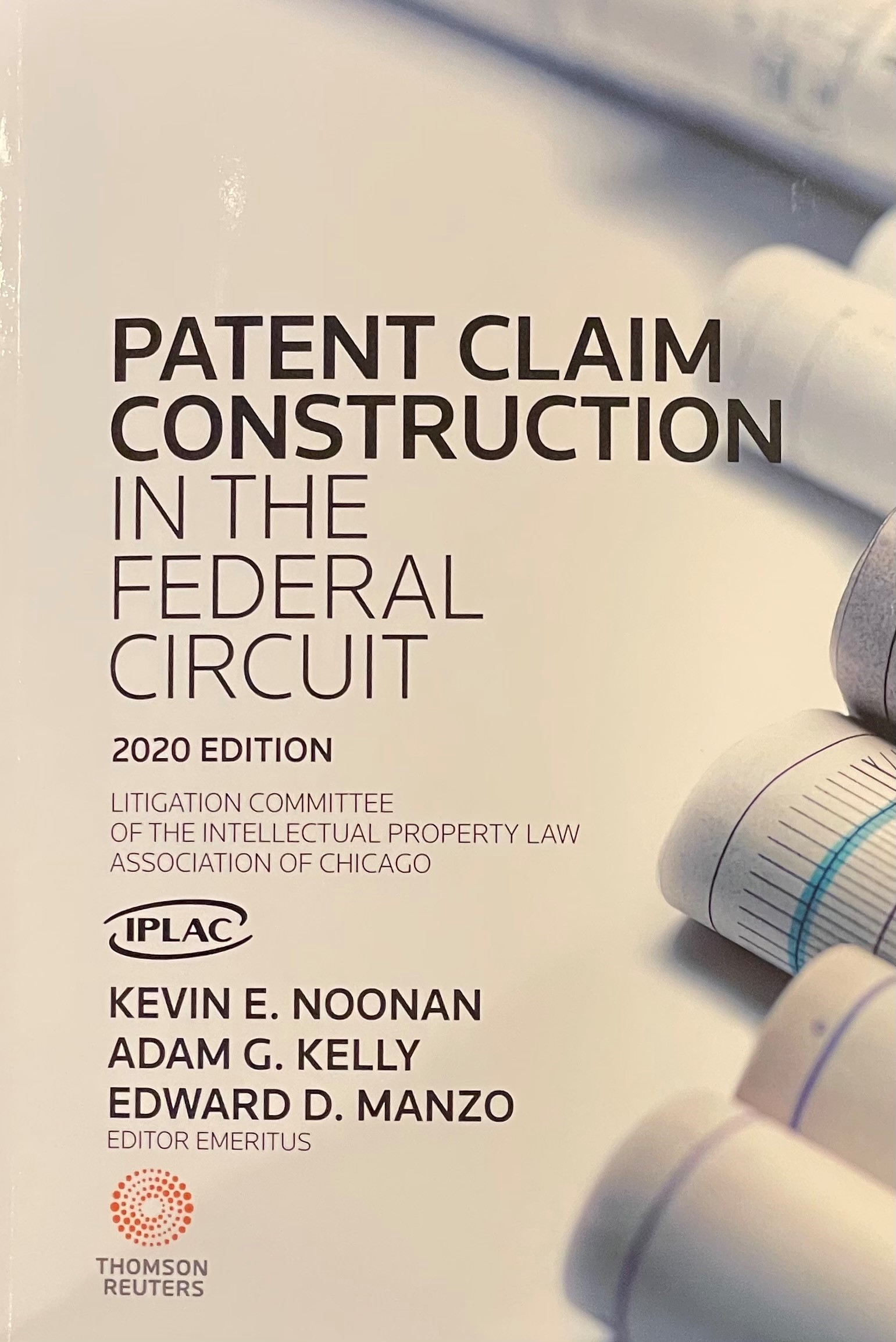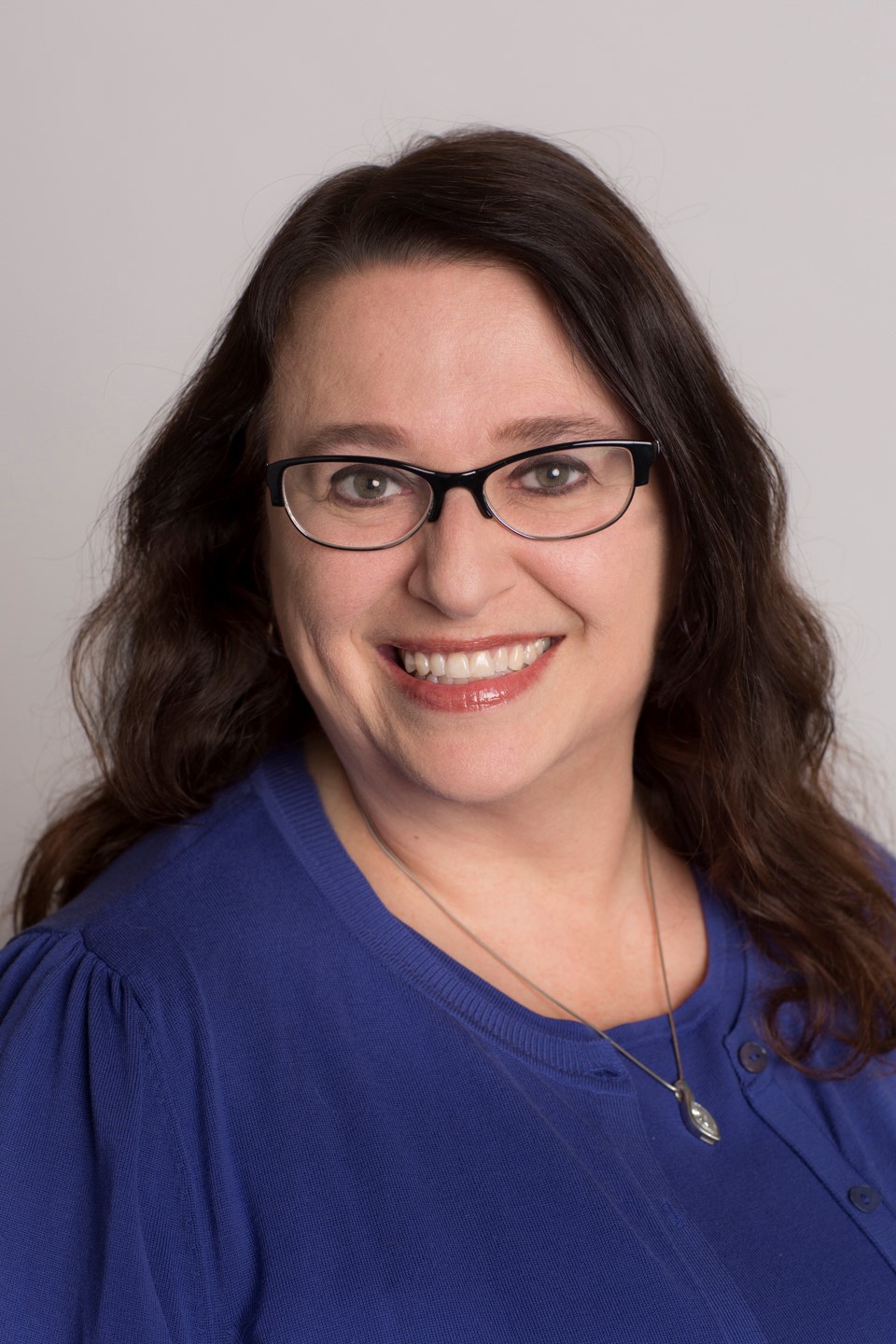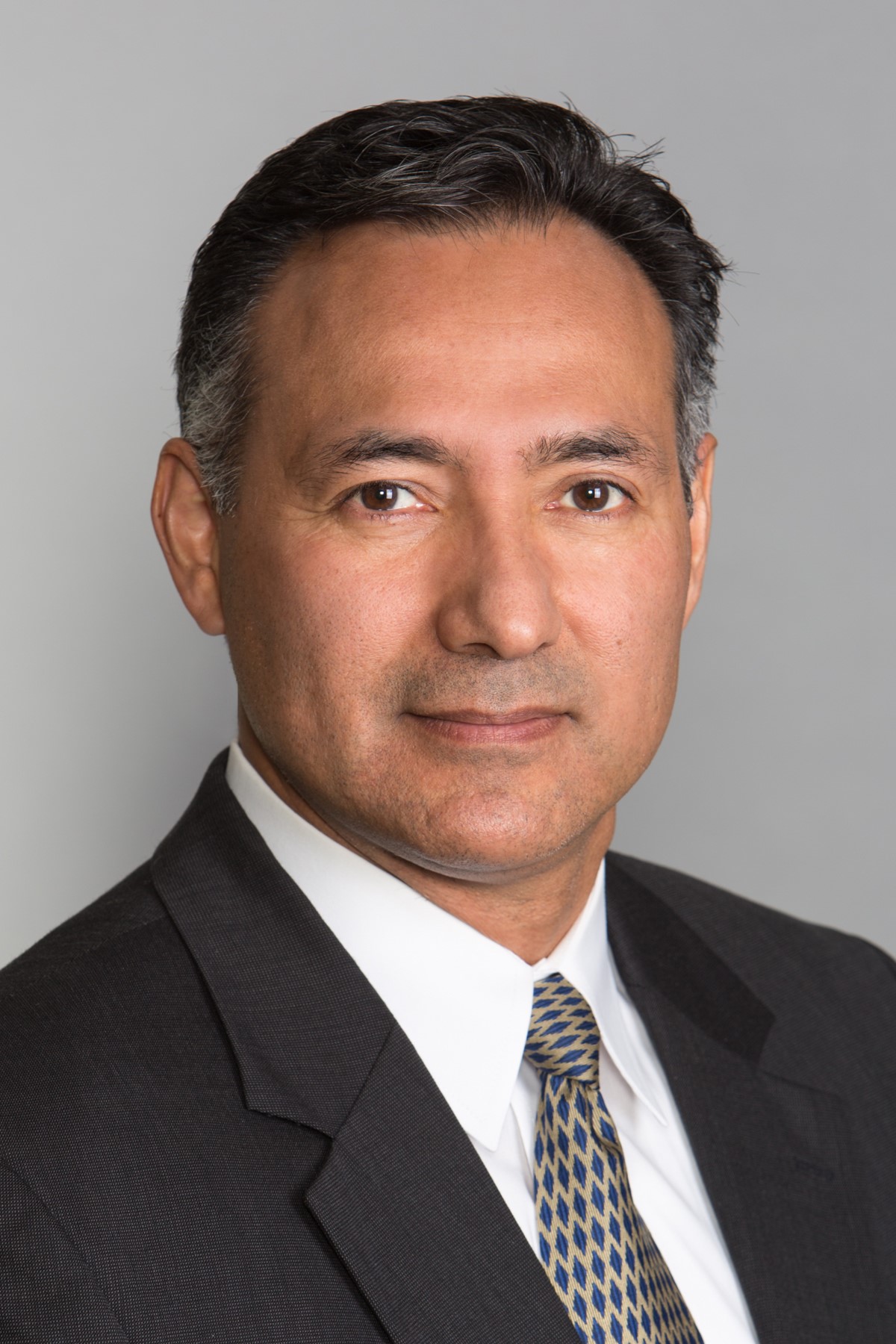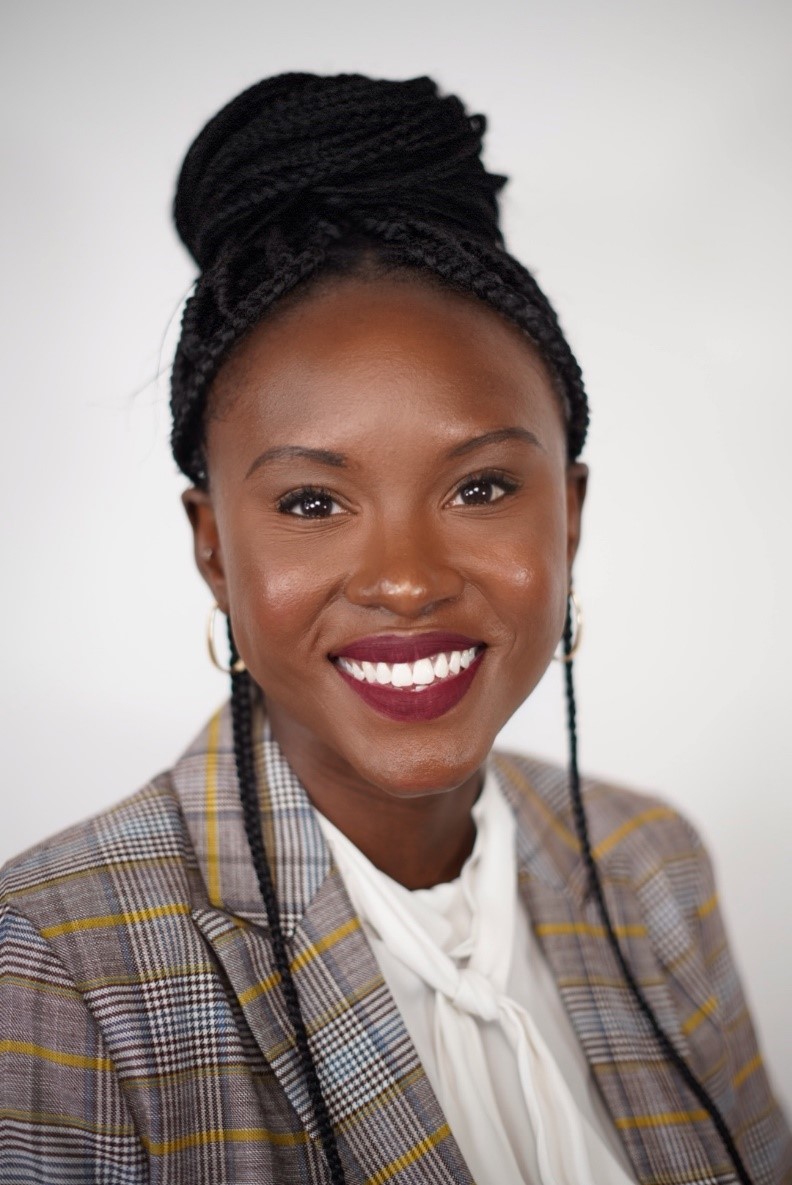IPLAC Newsletter – December 2020President’s CornerDear IPLAC Members, It’s that time of year again! I wish you all the best this holiday season, no matter which holiday you celebrate. And I know that next year at this holiday season, this pandemic will all be behind us. The silver lining, I believe, is that the dramatic innovations that made effective vaccines possible in record time, and the rapid innovations that have transformed our economy practically overnight will spur us on to an even greater pace of invention in the future. We are fortunate to be working in the intellectual property law field in this time of rapid innovation. As President of IPLAC, I am grateful for the continued support our members, committee leaders and Board have shown me and each other during these challenging times. We have had to transform into a virtual association practically overnight. I am thankful for all the hard work our committee leaders and members have put into to provide the many virtual events these past months, some of which are written up in this newsletter, and I look forward to even greater activities in 2021. In addition, I offer my hearty congratulations to the former law student members of IPLAC who are newly sworn in as 2020 Illinois attorneys. You new attorneys bring fresh perspectives to our profession. Each year I am excited to see the new crop of attorneys and new patent agents eager to impress us with their new skills and show off the latest and greatest technology to apply to our practices. I encourage you new attorneys to stay involved with IPLAC, whether continuing as a mentee in the mentoring program, or building a brand for yourself by volunteering in a substantive law committee and developing into a leadership role. IPLAC has much to offer to support your professional development. I would like to congratulate two of our members for recent honors: Jomarie Fredericks and Alex Menchaca, who are highlighted below in this newsletter. And I applaud IPLAC member, Mary T. Hannon, for an article she had published “The Patent Bar Gender Gap.” This is quite an eye opening revelation of gender bias baked into eligibility rules to qualify for the patent bar exam. This article prompted U.S. Senators Hirono, Tillis and Coons to send a letter to USPTO Director Iancu to take action. The link to that letter is available here. While IPLAC strives for gender diversity, we may have some hidden gender biases of our own. IPLAC was founded in 1884 when women in the legal profession were very few and far between. It was not until 1996 that Dolores K. Hanna became the first female IPLAC President. And in 2021, just 25 years later, we are looking forward to installing our 9th female President, Erin Lothson. You can see the list of past Presidents here. Please bring to my attention areas where IPLAC needs to do more, and consider getting involved in our Diversity & Inclusion Committee. Please contact Cynthia Assam, who is features in this newsletter. Working together we can make IPLAC an even better and diverse association for all.
Lastly, I want to congratulate the Amicus Committee on preparing an excellent amicus brief in the Arthrex lawsuit involving the constitutionality of the PTAB Administrative Patent Judges. In particular, thanks go out to Judy He, John Linzer and Margaret Duncan for authoring the brief. IPLAC takes a position in favor of neither party to maintain the status quo and uphold the validity of the APJ appointments on alternate grounds. If reading this newsletter gives you any ideas for a program or event you would like to see IPLAC do, or an organization that IPLAC can help, please drop me a note. I would love to hear from you. As we approach the end of this year and the beginning of the next, let us all be thankful for working in a profession that allows us to work remotely in the midst of a raging pandemic in the service of others, let us resolve to get actively involved in IPLAC in just one small way in 2021, and let us commit on one small way to help those less fortunate than us. One small way to do the latter is to make a year-end tax deductible contribution to the IPLAC Educational Foundation, which provides college scholarships to deserving Chicago Public School students looking to obtain a STEM degree or study pre-law. You can donate directly or dedicate a portion of your Amazon purchases through the Amazon Smile program. Details for both can be found here.
Marc V. Richards, Get Involved in IPLAC Committees! Sign Up for Committees or Change Your Committee Assignments Here! Committee leaders are listed on www.iplac.org. You can also send an email to [email protected] for more information on how to get involved, or contact me directly at [email protected].
Congratulations to IPLAC Members for Their Work in the Community
How COVID is Reshaping the Northern District of Illinois Procedures By R. David Donoghue; Vice-Chair, IPLAC Litigation Committee; IP Practice Group Leader, Holland & Knight, LPP The Northern District of Illinois has been a leader for the City of Chicago and district courts across the country, taking decisive action to balance the need for timely litigation and trials with a desire to protect the Court community and litigants from COVID. As I wrote in my Chicago IP Litigation blog, Chief Judge Pallmeyer issued a general order in March extending all civil deadlines 21 days, then added 28 more days at the end of March and an additional 28 days in April. While eleven weeks of extensions had a major impact on litigations across the Northern District, the most significant impact of the Court’s COVID actions is just beginning to be felt. At the end of October, Chief Judge Pallmeyer entered her Seventh Amended General Order. That Order had several significant components, including a suspension of all jury trials between November 9, 2020, and January 26, 2021; a continued suspension of courtesy copies; and a continued suspension of presentment hearings. The implications of each are discussed below, along with their potential long-term implications for Northern District practice. Suspension of jury trials The Court suspended all jury trials, civil and criminal, between November 9, 2020, and January 26, 2021. The criminal implications of suspending the Speedy Trial Act and delaying justice for the accused could be significant, but that is a topic for another publication outside of the IP space. There are also significant impacts beyond the obvious several month delay for existing trial schedules. In a district that is already overtaxed, trial delays are likely to compound. Already over-worked judges will be forced to work even harder, to the extent possible, and further delay trials and other significant hearings. Additionally, once the Speedy Trial Act is reinstated, the judges will have to handle the backlog of criminal trials before they are able to get to civil trial work. So, the delay for civil trials and civil cases generally, is likely to be greater than just the length of the trial moratorium. No Local Rule 5.2(f) courtesy copies Courtesy copies are not allowed absent "case-specific requests for copies from the presiding judge." As judges and their chambers have become more comfortable with Pacer and generally working in a paperless environment, many judges were already requesting that they not receive paper courtesy copies of simpler motions. While Local Rule 5.2(f) will likely be reinstated at some point, we expect that individual chambers who have become used to working paperlessly will increasingly only want courtesy copies if the papers are voluminous. No Local Rule 5.3(b) presentment Motions are no longer noticed as a matter of course. The fact that hearings are now only set if the Court deems them necessary is likely the COVID change with the longest lasting impact on the Northern District. The Northern District has traditionally relied upon in-person hearings after almost every motion filing. While some judges were already limiting presentment hearings pre-COVID, the Northern District generally had a hearing-driven practice. In March, that changed in an instant. Anecdotally, litigants are appearing live before Northern District judges much less frequently. While frequent contact with the judge has some advantages in terms of administration of a case, it comes at a significant time cost for the judges, their chambers and the litigants. Furthermore, in practice many of the presentment hearings lasted minutes while the parties offered the judge an agreed briefing schedule or laid out simple issues that could have been addressed on the papers or by email. Based upon my experiences with the Court since the COVID changes were put in to place, I expect whether or not the Northern District generally reinstitutes presentment hearings, many judges will do away with or significantly limit them. IPLAC 2020 Annual IP Law Symposium
One timely theme from many of the Judges was that restrictions put in place to ensure the health and safety of litigants, court officials, and staff in response to COVID-19 will continue to impact judicial proceedings into 2021. However, the courts and PTAB / TTAB have put in place many procedures to ensure individuals and businesses have access to the courts and PTO proceedings. Several of the District Court Judges have even held civil bench and jury trials during this time, with special accommodations to maintain social distancing between jurors. The TTAB and PTAB even allow limited online access to proceedings by the public. Several of the Judges also believed that changes in the way discovery is currently taking place in view of COVID-19 could have a lasting effect on the way that venue determinations are made. For example, parties wanting to change venue may not as easily be able to argue inconvenience for the taking of fact and expert witness depositions when proven access to such discovery via video conference is an option. This and other examples may influence parties on where to file a complaint, and how likely it is for a defendant to succeed in a request to change venue. The annual symposium was well attended with about 70 online participants. Thanks go out to John Cullis of Barnes & Thornburg who hosted the TTAB session, Eugene Goryunov of Haynes & Boone who hosted the PTAB session, and Sharon Hwang of McAndrews, Held & Malloy, Ltd., who moderated the District Court Judge session. IPLAC thanks the IP Symposium Committee for organizing the event: Co-Chairs Jim Muraff of McDonald Hopkins LLC and Matt Marrone of McAndrews, Held & Malloy, Ltd., and Vice Chair Viren Soni of the CME Group. Finally, IPLAC wishes to thank firm sponsors of the Symposium: McDonald Hopkins LLC, McAndrews, Held & Malloy, Ltd., Brinks Gilson & Lione, Torchman IP, Barnes & Thornburg, and Haynes & Boone for supporting IPLAC and the conference. U.S. Bar – EPO Liaison Council Virtual Meeting on November 19, 2020Thanks to all who submitted comments and questions for discussion at the Nov. 19, 2020 meeting of the U.S. Bar – EPO Liaison Council. During the meeting, EPO managing officials met with representatives of various U.S. bar associations and fielded questions concerning quality of examination and other issues. IPLAC was represented by delegates Elias Soupos and Joe Shipley. The EPO’s news release following the meeting can be found here. The EPO will provide copies of the slides presented during the meeting within the next few weeks, and these will be made available to interested IPLAC members. IPLAC members who have issues they would like included in future discussions with EPO managing officials are invited to contact Elias or Joe. On the subject of timeliness of actions by the EPO, the IPLAC delegates relayed a concern expressed in response to the IPLAC survey by an attorney who had waited over four years for an examiner to reply to a response to an office action. The EPO officials expressed concern about this and advised that the EPO works to prioritize older cases. Niclas Morey, the EPO’s Principal Director of User Support and Quality Management asked that any user who experiences an unreasonable delay contact him with the application number. He advised that the EPO takes all complaints seriously with an eye toward continual improvement of EPO processes. Mr. Morey commented that the EPO handles 500,000 communications per year, and receives complaints regarding 500 issues per year. He remarked that users should not be concerned about receiving a negative reaction to complaints by EPO examiners, but noted that complaints made in connection with oppositions become part of the public record. An additional concern raised by the Council during the meeting relates to unsubstantiated Examiner positions in support of rejections (akin to an Examiner taking “Official Notice” in US prosecution), which the EPO officials confirmed is inappropriate under EPO rules and invited complaints from users in this respect. The EPO provides a link for submitting complaints. Relative to the pandemic, the EPO reported that the overall volume of new patent applications filed in the EPO has declined slightly in 2020. The number of filings relating to healthcare has increased, while the number in other areas, e.g., automotive and aerospace, has declined. The EPO also discussed its rising backlog for opposition matters, the disposition of which has declined in recent months but is expected to increase and stabilize as EPO staff establishes better internal collaboration processes while working remotely. As in past years, about 25% of EPO filings are from U.S. applicants. The EPO also provided a brief update on the Unified Patent System following Brexit and legal challenges in Germany, and predicted the system to enter into force in the first semester of 2022. In the final portion of the meeting, US representatives and EPO staff delivered a combined presentation on the topic of patenting artificial intelligence and machine learning. The EPO will hold a separate conference on the topic on December 17 and 18, and expects to publish updated examination guidelines in this respect in the first quarter of 2021. Anyone interested in registering for the EPO’s conference can find further information here. Volunteer Opportunity at the USPTO!
The USPTO is seeking additional volunteers for the Patent Pro Bono Program. IPLAC members who are patent practitioners are uniquely positioned to help under-resourced inventors and small businesses file and prosecute patent applications. Patent practitioners can volunteer through their local patent pro bono program. Please see https://www.kentlaw.iit.edu/seeking-legal-help/illinois-patent-pro-bono/volunteer-attorney-information, www.uspto.gov/probonopatents, or www.uspto.gov for more information on how to volunteer. The local program screens applicants using criteria that include: (1) household income; (2) knowledge of the patent system; and (3) possession of an actual invention (not merely an idea) to ensure that each inventor or small business is a good candidate for assistance. Last year, over 80 patent practitioners volunteered 50 or more hours on patent pro bono programs, and over 20 law firms were recognized for their practitioners’ participation. The USPTO continues to offer achievement certificates to practitioners, law firms, and corporations that provide the requisite hours of patent pro bono service in 2020. Certificates are signed by Commissioner for Patents, Drew Hirshfeld, and Deputy General Counsel and Director for the Office of Enrollment and Discipline, Will Covey. Additionally, certificate recipients are listed on the USPTO website if they so choose. Please take advantage of these opportunities to help financially under-resourced inventors and small businesses engage in our innovation economy. Special Feature – Get to Know an IPLAC Member: Cynthia Assam
Cynthia’s parents are immigrants from Cameroon, West Africa, which has given her a life full of firsts. She is a first-generation American, the first in her family to graduate from law school, and the first attorney in her family. Though graduating law school was a tremendous honor for Cynthia, the moment came with mixed emotions as she was worried there was not a strong professional network waiting for her back in Chicago. In her own words, “IPLAC has been crucial in helping me bridge the gap between my classroom preparation and the actual practice of law.” Arriving in Chicago after law school, the IPLAC mentoring program helped ensure Cynthia was part of the intellectual property community in town. She credits her mentor, Erin Lothson, for giving immensely helpful advice on handling day-to-day legal practice, as well as how to make and achieve long-term career goals. Moving forward, Cynthia sees IPLAC continuing to connect her with distinguished attorneys and broadening her vision of what a career in intellectual property law can look like. Beyond the strong connections Cynthia made through IPLAC, she enjoys the forum IPLAC provides for a breadth of topics ranging from cutting edge intellectual property issues to the informal discussions on race, class, and equity. So far this year, the Diversity and Inclusion Committee has hosted several successful book club discussions diving headfirst into books on anti-racism, class, the liberation of BIPOC, and more. Cynthia looks forward to the upcoming discussion of the book “We Were Eight Years in Power” by Ta-Nehisi Coates in early 2021. Beyond the timeliness of the topics, the book club discussions are Cynthia’s favorites because of the willingness of IPLAC members to have vulnerable, honest conversations on equity and the shared responsibility we attorneys have to take action to advance equity. Transitioning to virtual content this year has not been easy, and Cynthia recognizes the hard work by the leadership team and all IPLAC members to ensure this broad forum is not lost. For prospective IPLAC members, Cynthia sees the immediate benefits of connecting with brilliant and accomplished attorneys who are willing to offer their guidance - she is happy she made the decision to join IPLAC when she returned to Chicago. Cynthia sees IPLAC membership continuing to benefit her by providing leadership opportunities, offering informative events on technology and innovation, and positioning her within a supportive network of distinguished attorneys. The IPLAC mentoring program served as her on-ramp to many of these continuing benefits of membership. This year Cynthia felt especially humbled and grateful for her health and the health of her loved ones despite the unprecedented mental and emotional impacts of COVID-19. Beyond keeping a gratitude-based mindset, she has kept balanced though meditation, gardening, and community involvement. Cynthia keeps her positive perspective on things through daily meditations on gratitude and by tending to her extensive collection of plants, ranging from little succulents to her magnificent monstera. She keeps in touch with her community by producing a podcast and IGTV series hosted by her former law school classmate, Leslie E. Redmond (@LeslieERedmond on Twitter and Instagram). On “Kings & Queens Unite,” they interview prominent civil rights activists, professional athletes, and elected officials. Each week, they have a lively discussion on the same topic: amplifying the voices of Black women, healing within the Black community, and calling on ourselves to champion the liberation of all Black lives. Be sure to catch the next episode of Kings & Queens Unite on Monday, January 4, 2021! IPLAC Trivia Question
Answer: 2001: A Space Odyssey. Read more about it here!
IPLAC welcomes submissions of material for its e-newsletter. Please forward information to Adam Sussman of Brinks Gilson & Lione.
|


 Also, I want to th
Also, I want to th With warmest wishes for safe and healthy holidays and new year,
With warmest wishes for safe and healthy holidays and new year,


 Cynthia, Corporate Counsel at Redwood Logistics, is the vice-chair of the Diversity and Inclusion Committee. Though she obtained her law license in 2019, the fast-paced environment at Redwood has provided the opportunity for Cynthia to practice many different fields in a short amount of time - transportation law, technology, data privacy, and intellectual property, which brought her to IPLAC earlier this year. Photograph credit to Chris Burnett (@chrisXburnett on Instagram).
Cynthia, Corporate Counsel at Redwood Logistics, is the vice-chair of the Diversity and Inclusion Committee. Though she obtained her law license in 2019, the fast-paced environment at Redwood has provided the opportunity for Cynthia to practice many different fields in a short amount of time - transportation law, technology, data privacy, and intellectual property, which brought her to IPLAC earlier this year. Photograph credit to Chris Burnett (@chrisXburnett on Instagram). In 2011 Samsung, in an extreme maneuver, tried to defeat a preliminary injunction by notoriously relying on
In 2011 Samsung, in an extreme maneuver, tried to defeat a preliminary injunction by notoriously relying on